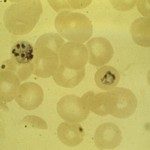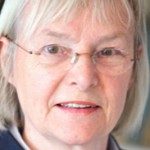Lien vers Pubmed [PMID] – 12508277
Bioessays 2003 Jan; 25(1): 13-6
The “community effect” is necessary for tissue differentiation. In the Xenopus muscle paradigm, e-FGF has been identified as a candidate community factor. Standley et al.1 now show that the community effect, mediated through FGF signalling, continues to be important at later stages of development in the posterior part of the embryo. In this region, the paraxial mesoderm is still undergoing segmentation into somites, which are the site of early skeletal muscle formation. Indeed, somitogenesis, together with the read-out of the Hox code, which confers anteroposterior positional identity, is regulated by FGF signalling. This raises the question of the co-ordination between these events and the community effect which orchestrates myogenesis.


